We’ve all been in a situation where we wanted to take a picture with family or friends but were worried about how a flashing flash would affect our eyes. The question arises here: “Can you get blind from camera flash?”
The following article details how camera flashes work scientifically and what they might do to your eyesight. From learning how our eyes work to looking at ways to keep them safe, we want to give a clear picture of this common worry.
Let’s find out what’s going on!
Contents
- 1 Comprehending Camera Flash and Its Intensity
- 2 3 Safety Tips To Keep In Mind Camera Flash
- 3 The Science of How Our Eyes React to Camera Flash
- 4 6 Safety Measures to Protect Your Eyes from Camera Flash
- 5 Get Blinded by Camera Flash-Debunking the Myth
- 6 Debunking Common Misconceptions about Camera Flashes
- 7 FAQs About Getting Blind From Camera Flash
- 7.1 Are Camera Flashes Harmful To Babies’ Eyes?
- 7.2 Can Prolonged Exposure To Camera Flashes Cause Temporary Blindness?
- 7.3 How Do I Reduce Red-Eye In Photographs?
- 7.4 Can Camera Flashes Worsen Existing Eye Conditions?
- 7.5 Can I Use A Smartphone’s LED Flash For Photography Without taking risks?
- 7.6 Do Professional Photographers Face Higher Risks From Camera Flashes?
- 8 The final Suggestions
Comprehending Camera Flash and Its Intensity
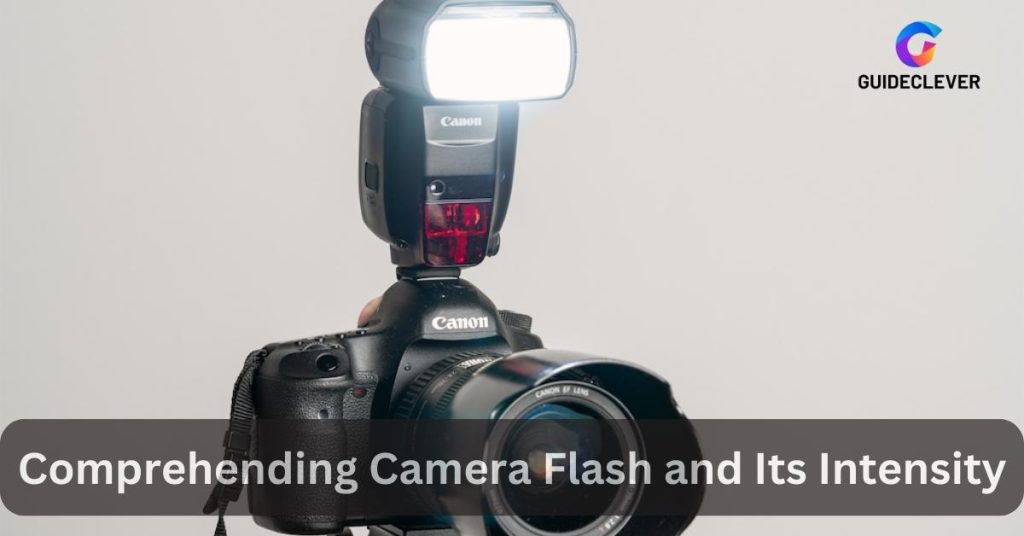
Before discussing how it could impact your vision, let’s talk about what a camera flash is and how strong it can be.
A flash is a short burst of light from the camera’s lens or an outside source. It is designed to provide light in low-light conditions. Thus, it also ensures well-exposed and vibrant images. It can show how much power a camera flash puts out.
A camera flash is not likely to make you lose your sight. Most camera (Kodak) flashes are short and need to be stronger. So they don’t usually do long-term damage to the eyes. But it is possible to have flash blindness. It is a short-term loss of vision that can last a few seconds or minutes. The intense light from the flash is too much for the retina. It is the light-sensitive tissue at the back of the eye.
In rare cases, a camera flash could damage the eye permanently if it is very bright, as if the person looked right into the moment. But this is very unlikely to happen, and if it did, it would only occur if the person was already at risk of retinal damage. It is as if they already had an eye disease.
So you don’t have to worry about a camera flash making you go blind. But if you are worried about your eyes, you should always wear sunglasses when taking photos in bright sunlight. Try not to look straight into the flash.
3 Safety Tips To Keep In Mind Camera Flash
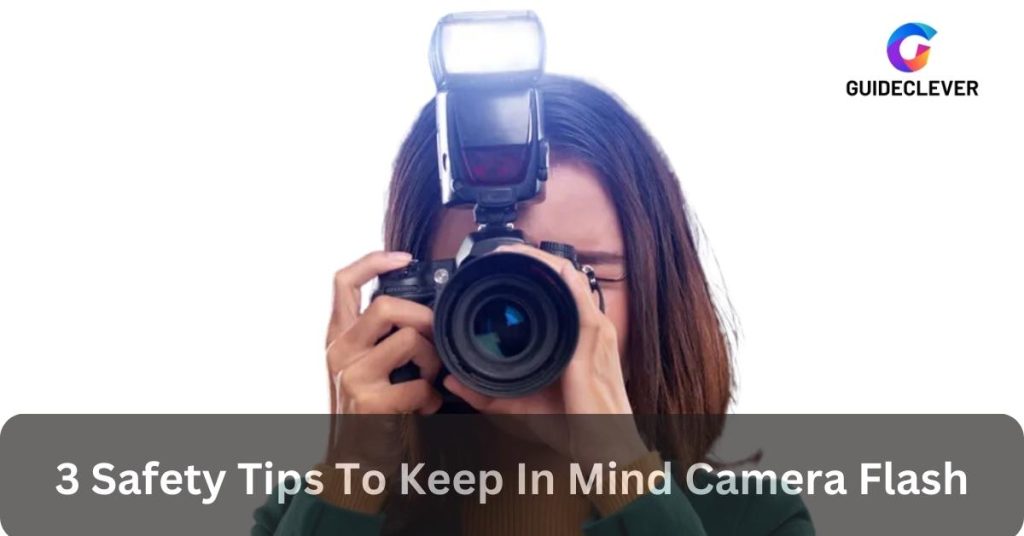
Here are some more tips to remember about safety:
- If you’re taking pictures of kids, tell them the flash is coming and to close their eyes.
- When taking pictures of animals, keep the flash far enough away so as not to scare them.
- If you take photos in a dark place, set the flash to the lowest setting. Then try to get as little light as possible into your eyes.
I’m hoping this is useful and give you more advantages!
The Science of How Our Eyes React to Camera Flash
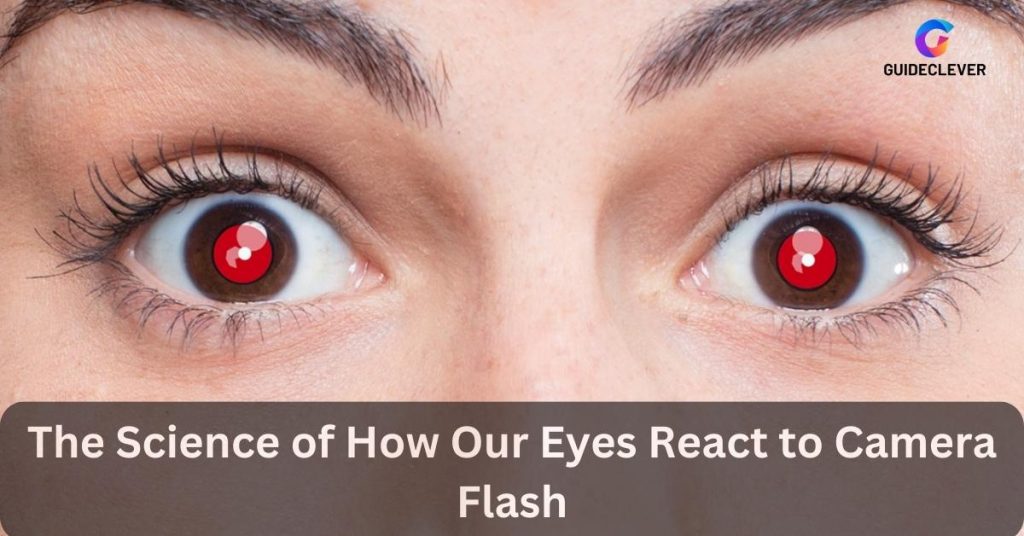
Our eyes are very good at changing how much light they see. When the light changes, the pupils get bigger or smaller to let the right amount of light into the eyes. When the eyes are hit with a fast burst of light, like a camera flash, the pupils quickly get smaller to limit how much light gets to the retina.
Also, the blink response is essential to keeping our eyes safe. As soon as the flash goes off, we automatically blink. It also protects our sensitive retinas even more.
6 Safety Measures to Protect Your Eyes from Camera Flash
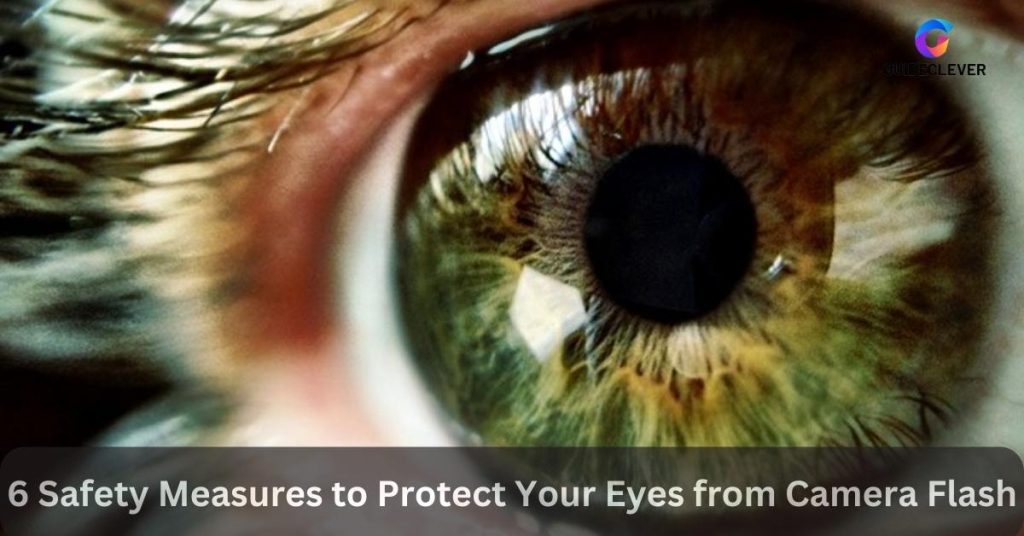
Even though camera flashes can’t make you blind, taking some safety steps is still essential, especially if you’re behind the camera.
Maintain a Safe Distance
When taking pictures of people or animals, keep a safe distance so the flash doesn’t hurt their eyes too much.
Use Red-Eye Reduction
Red-eye reduction is a function that most current cameras have. This flash before the central moment makes the eyes less sensitive to the main flash and less likely to get red eyes.
Diffuse the Light
Use a flash reflector or bounce the illumination off a shiny surface to make the light softer and less bright.
Avoid Prolonged Staring
If you want to escape brief pain, don’t look straight into the camera flash while sitting for a picture.
Be Mindful of Medical Conditions
If you already have a retinal problem, you should talk to an eye doctor about how flash photography might affect you.
Expert Insights on Camera Flash Safety
We talked to Dr. Sarah Thompson, an optometrist with more than 15 years of experience, to learn more about how safe camera flashes are for your eyes.
Dr. Thompson says, “Camera flashes don’t hurt your eyesight if you use them correctly. Our eyes have evolved to handle different amounts of light well, and the short length of a camera flash reduces any risks.
But people with specific medical issues, like problems with the retina, should be careful and talk to their eye care workers.”
Get Blinded by Camera Flash-Debunking the Myth
Many have heard that camera flashes can cause blindness, but how true is this?
The answer is a clear “no.” Even though camera flashes give off an intense burst of light, they are not strong enough to make you blind for good. The moment of light lasts very short, usually only a few hundredths of a second. Our eyes are very good at adjusting to quick changes in light, and the urge to blink helps keep them safe.
Debunking Common Misconceptions about Camera Flashes
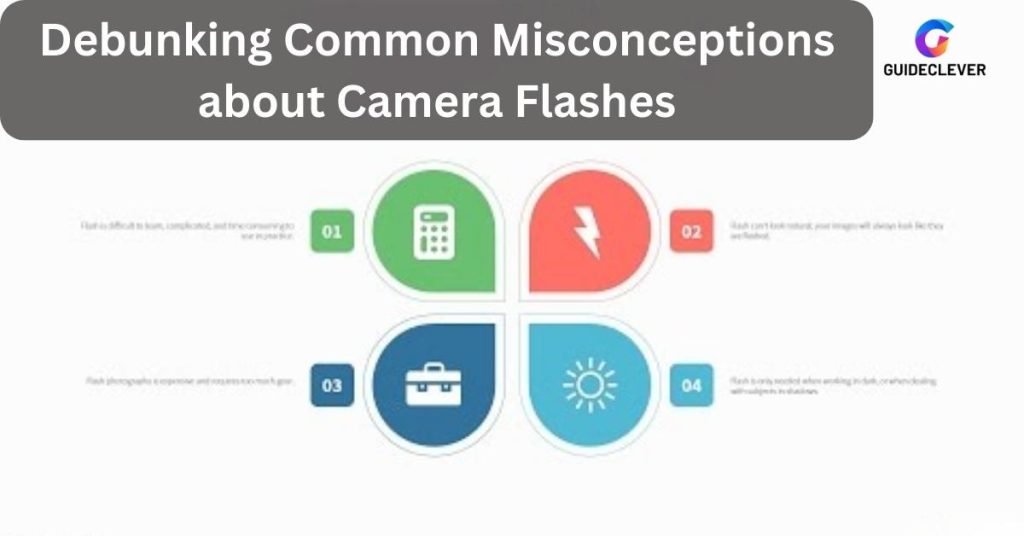
Let’s talk about some popular myths about camera flashes and how they affect vision:
Misconception 1: Camera Flashes Can Cause Permanent Blind Spots
It’s not true. The light from a camera flash is not strong enough to damage the retina or make dark spots.
Misconception 2: Frequent Use of Camera Flashes Leads to Eye Degeneration
There is no solid proof to back this claim. If you use your camera’s flash properly, it won’t hurt your eyes.
Misconception 3: Children Are More Susceptible to Camera Flash Damage
Even though children’s eyes are still growing, camera flashes are so quick that they don’t pose any more risks to them than to adults.
FAQs About Getting Blind From Camera Flash
Are Camera Flashes Harmful To Babies’ Eyes?
No, camera flashes are not harmful to babies’ eyes when used responsibly. But it’s best to stay away from straight moments at close range.
Can Prolonged Exposure To Camera Flashes Cause Temporary Blindness?
No, camera flashes emit light briefly, making temporary blindness highly unlikely.
How Do I Reduce Red-Eye In Photographs?
Most cameras have a red-eye reduction mode that pre-flashes to reduce the amount of red-eye in photos.
Can Camera Flashes Worsen Existing Eye Conditions?
People with specific eye problems may feel pain when a camera flashes. Talk to an eye doctor for individualized help.
Can I Use A Smartphone’s LED Flash For Photography Without taking risks?
LED flashes on smartphones are usually safe for shooting, but you shouldn’t look immediately.
Do Professional Photographers Face Higher Risks From Camera Flashes?
Professional shooters know how to use camera flashes safely and protect their subjects’ eyes.
The final Suggestions
In conclusion, it is not true that camera flashes can (blinking red) make people go blind. Thanks to our natural ways of adapting and our blink response. In most cases, camera flashes are not strong enough to damage our eyes in a way that will last. Even though they don’t pose a significant threat to vision, using them safely is essential. Then take precautions to protect our eyes and the eyes of our targets.
So take pictures of those crucial times without worrying that the flash will hurt someone. Keep a safe distance, use red-eye reduction if needed, and spread the light for softer effects. Knowing the facts lets you preserve memories without putting your eyes at risk.


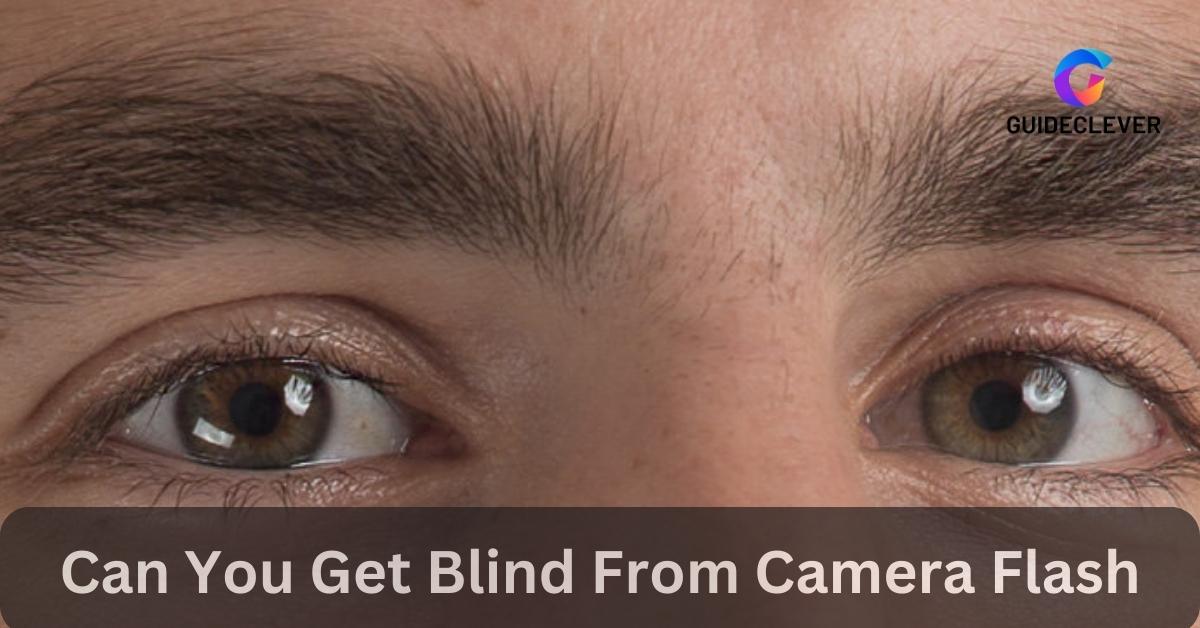
1 thought on “Can You Get Blind From Camera Flash [3 Safety Tips]”